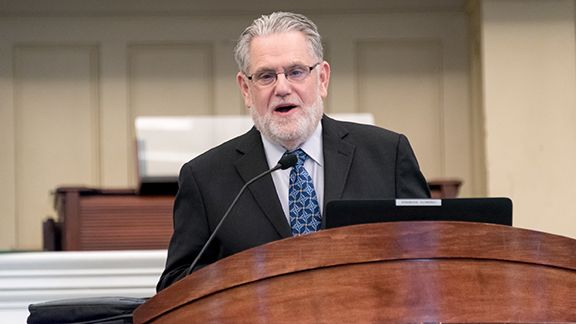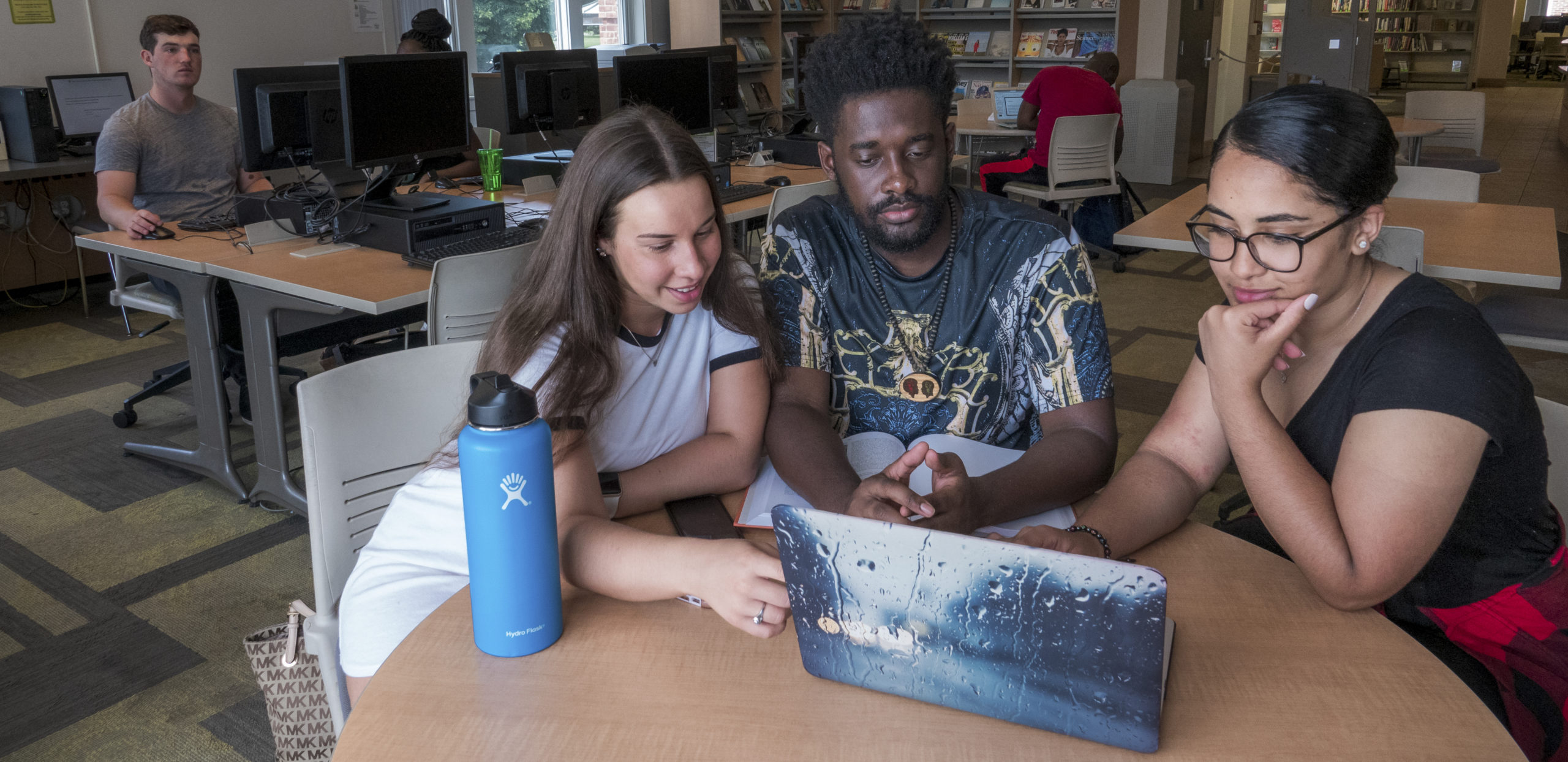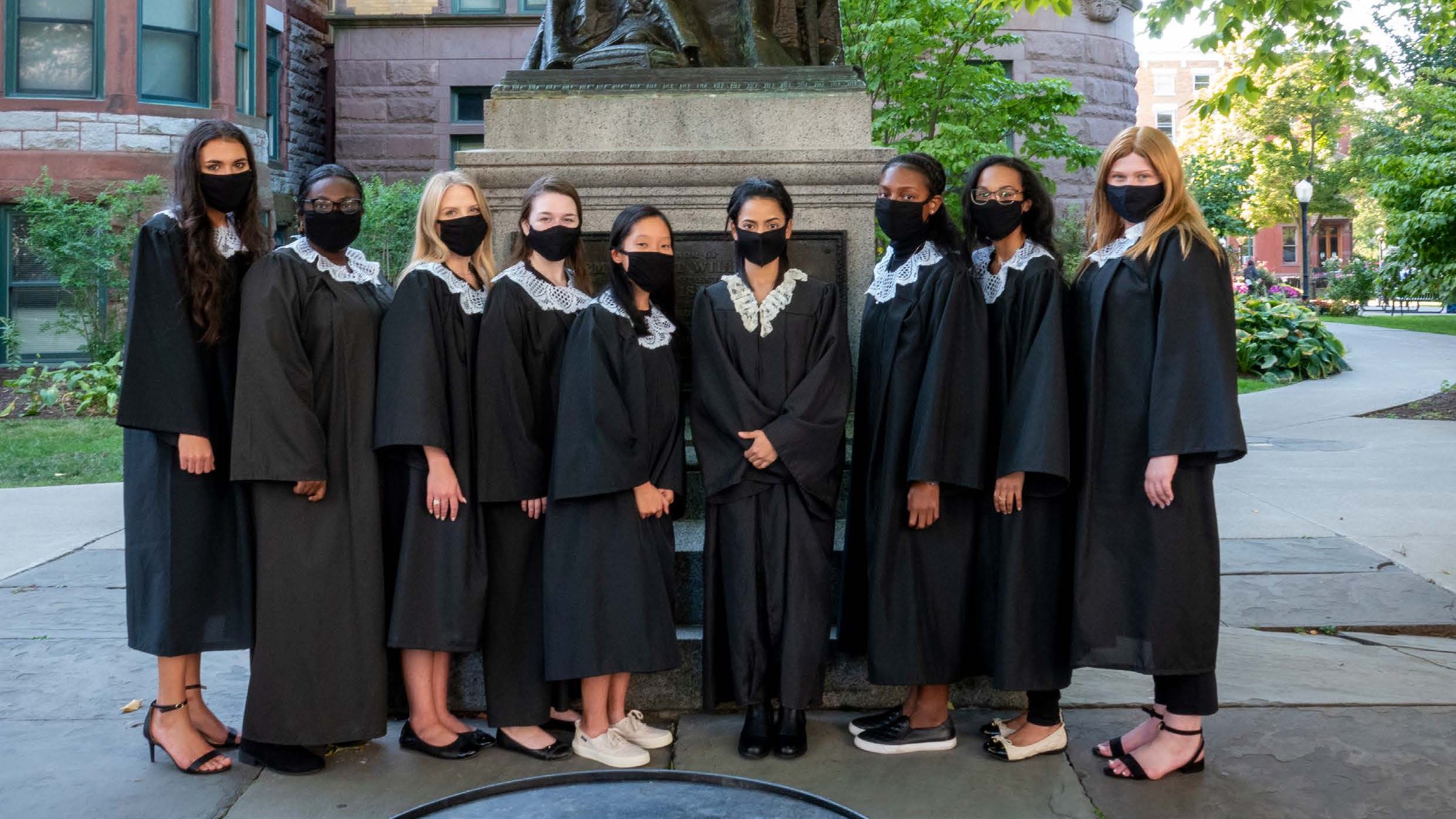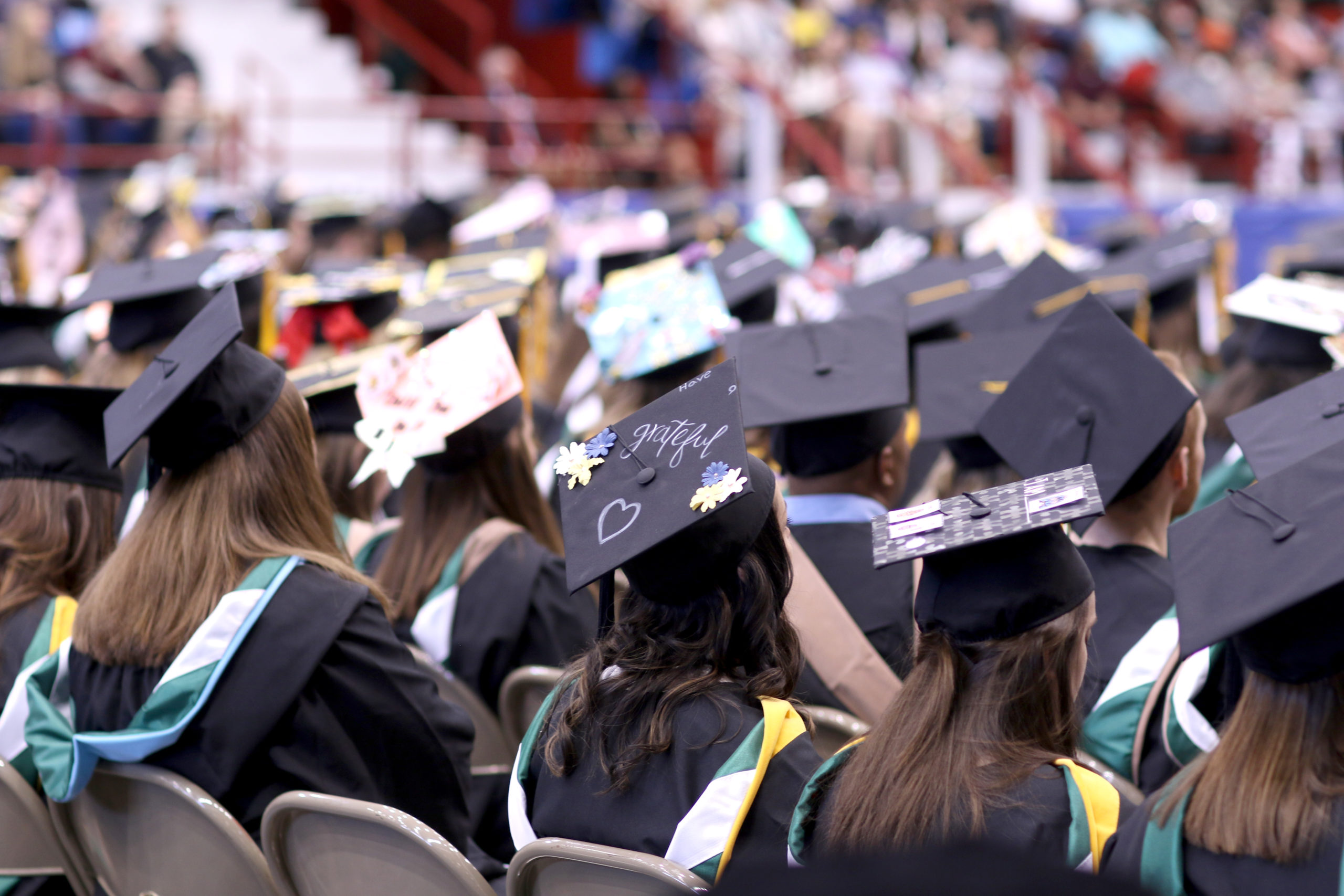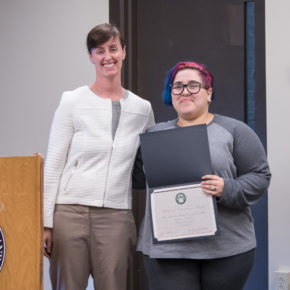
When Assistant Professor of Writing and Interdisciplinary Studies Maureen Gokey joined Russell Sage College, she knew what kind of literature she wanted to teach — and it was not the well-known works of William Shakespeare or F. Scott Fitzgerald that she was assigned as an undergraduate.
Instead, she planned to emphasize the diversity in literature that she did not encounter until graduate school — and, most importantly, she wanted to highlight writers who reflected the diversity among her students at Sage.
Inspired by Bessie Head’s When Rain Clouds Gather, Buchi Emecheta’s The Joys of Motherhood and “essays that spoke to racism and sexism in academia, in literature, even in feminist spaces,” Gokey worked with colleagues and students to develop courses focused on often-marginalized voices.
The Writing and Contemporary Thought program launched its Diverse Voices series in 2017 with Voices from the Fringe, taught by Assistant Professor of Writing Nathanael Green. The class examined writers of color, writers from LQBTQ+ communities and works like graphic novels that “fall outside of ‘Capital L Literature,’” said Gokey. “It was a great course, posing questions and asking students to reframe how we value text and writers in different ways.”
Since then, the series has added Daughters of Africa, which studies female writers with roots in the African Diaspora (Gokey taught the class for the second time in fall 2020), and Children of Conquistadors, about Latina/o artists and writers, which was developed by Gokey with input from Grace Camacho ’18.
Camacho said she enrolled in Daughters of Africa to support a diverse curriculum. She remembers it as a class that “opened the door” to classroom conversations about race. “In other classes, there was almost a tight lip on discussions of race,” she said. “Daughters of Africa started helping things loosen up.”
Camacho then approached Gokey about a class focused on Latina/o authors, and suggested that Soledad by Angie Cruz be included.
“I read Soledad multiple times in middle school and high school,” she said. “It inspired me because I could see a Dominican woman writing and being successful at it, which is something I wanted.”
She also suggested the course title that recognized the influence of native and European cultures on contemporary Latina/o writers. Gokey agreed to follow up on Camacho’s idea. She taught Children of Conquistadors during Camacho’s senior year.
“It was very validating,” said Camacho, both of having a professor act on her request and of the actual course content.
Both Gokey and Camacho acknowledge that diverse voices must be included on the faculty as well as in the curriculum.
“That is something we are working on,” said Gokey.
She met with former director of Diversity and Inclusion David Green, Ph.D., about growing the series and looks forward to continued collaboration with new director of Diversity and Inclusion Barbara Cockfield.
“We have a gender and sexuality course in Sociology and I think it would be interesting to do a companion literature class,” Gokey said, “and a course about deconstructing ableism, because in this country we tend to privilege what are considered able bodies.”
The courses are open to students across disciplines.
“Students are responding very positively. They all find new books, new ideas,” said Gokey. “Sometimes there’s a critique of the canon or a critique of the patriarchy, but the goal of the series is to celebrate diverse voices.”


